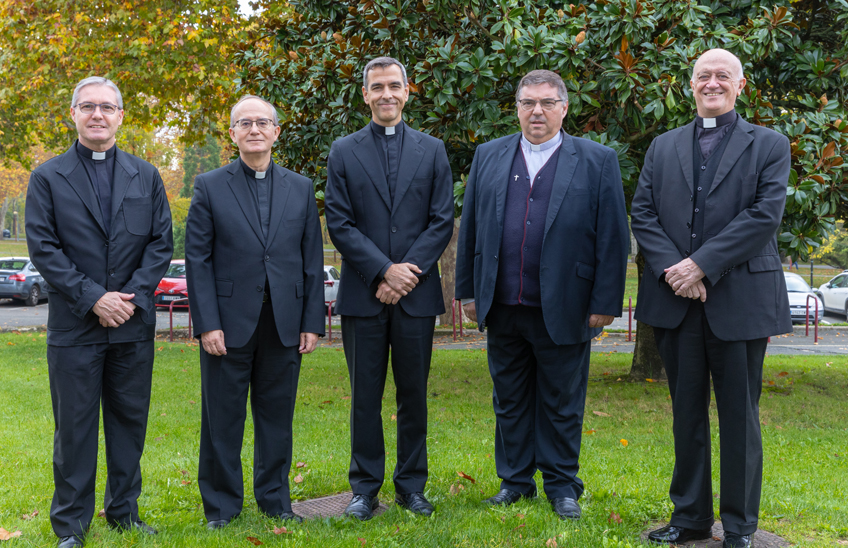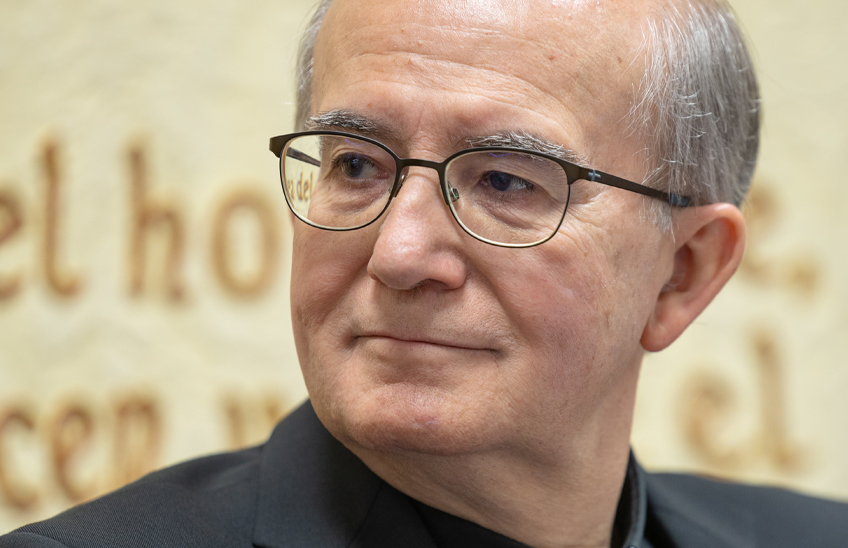"The Lord's Prayer is not a simple prayer formula staff but something unique: it is the prayer of Jesus taught to his disciples."
Professor Francisco Varo participated in a workshop on the Lord's Prayer together with the experts Félix Mª Arocena and Francisco José López.

FotoManuelCastells/From left to right, José María Pardo, Francisco Varo, Gregorio Guitián, Francisco José López and Félix Mª Arocena.
13 | 11 | 2024
"The Our Father is not a simple prayer formula staff but something unique: it is the prayer of Jesus taught to his disciples". This was recalled by the professor of Sacred Scripture of the University, Francisco Varo.
His statements were made in the context of the workshop on the Lord's Prayer organized by the School of TheologyTheology, in which also participated the priests and professors Félix María Arocena, from the University of Navarra, and Francisco José López, from the San Dámaso Ecclesiastical University.
The workshop, organized on the occasion of the Year of Prayer declared by Pope Francis in preparation for the Jubilee of 2025, was moderated by Professor José María Pardo, who affirms that the Our Father is one of the most profound expressions of the Christian faith: "It is, above all, an act of praise and an expression of humility. Through prayer we recognize God as a close and loving father, and he invites us to open our hearts and trust him fully".
In his talk, entitled 'The Lord's Prayer in the Gospels: Text and Context', Professor Varo studied the prayer from a biblical point of view, in which he gave a brief overview of its context in the Gospels of St. Matthew and St. Luke. He assured that it must be read and understood in the light of the Judeo-Christian tradition, and recalled that it maintains close ties with the whole of Scripture: "Each of its petitions expresses an important topic that runs through the Bible".

For his part, Professor Arocena analyzed the prayer from a liturgical point of view. The degree scroll of his exhibition was 'Faithful to the recommendation of the Savior and following his divine teaching we dare to say. The Lord's Prayer in liturgical perspective'. He developed two central themes: the Lord's Prayer in the Ritual of Christian Initiation of Adults; and the Lord's Prayer in the Roman Missal. Through them he stressed the importance of "awakening in each one of us the amazement at what we pray every day from the profound reverence with which the liturgy treats Sunday prayer".
Francisco José López, from the San Dámaso Ecclesiastical University, gave the third session that closed the workshop. With a discussion paper entitled 'Resonances of the Aramaic Our Father in the Syro-Oriental spiritual masters, a mysticism of the Father', he focused his message on the reception of prayer in the theology of the Eastern tradition. He stressed the importance of pronunciation and gestures in the recitation of the Lord's Prayer in this tradition.




